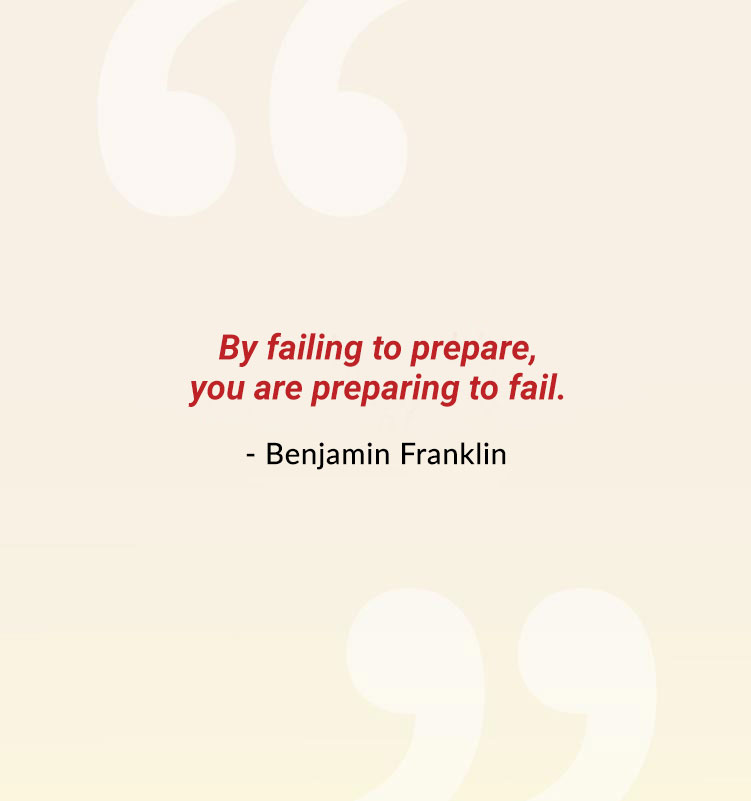How to figure out how much to save in an emergency fund!

Emergency funds are essential to effectively manage financial emergencies in the short and long term. However, unlike other forms of savings, the amount you save under an emergency is not a flat amount- instead, it depends on your lifestyle and expenses.
The ideal amount to save in an emergency fund is 3-6 months’ worth of expenses. However, this is not fixed; it also depends on a number of other factors, such as these:
- The stability of your income
The stability of your income is one of the most important factors because the regular inflow of cash means that you will be prepared to handle emergencies better. On the other hand, if you have irregular or seasonal income, you might need to have a larger emergency fund so that you can be better prepared for emergency expenses during a low-income season.
But it’s not just about how regular your income is- it’s also important to look at what stage of work you are in and the industry you are working in to understand how stable your job is. Let’s consider these case studies to understand more:
Case 1: Beginners
Emergency corpus of up to 4-5 months
Reeti is a web developer at a large MNC with a work experience of almost a year. Even though she earns a steady income, she worries that she might lose her job due to factors out of her control, such as a sudden spike in automation, an economic slowdown or even a global pandemic. She also fears that due to her lack of experience, there could be others who could easily take up her job. Therefore, she should have an emergency corpus of 4-5 months so that she can pay her day-to-day expenses in case she loses her job.
Case 2: Unstable Job
Emergency corpus of at least 6 months
Rishi is a freelance graphic designer with an experience of 3 years. His income entirely depends on the number of clients he works for. As a freelancer, he doesn’t have the security of a regular income as his earnings solely depend on the number of clients he gets in a month. He should create an emergency fund for at least 6 months’ worth of expenses so that he can sustain himself during the months when he doesn’t get as many projects, or if he is not able to work due to any personal or medical reasons.
Case 3: Stable Jobs
Emergency corpus for 3 months
Zeeshan is a 45-year old IT professional who is planning to save for the down payment of a home. He also enjoys certain perks from his company such as company transportation, group health insurance and salary during the notice period if he is suddenly laid off. Even though he earns well and has good saving habits, he needs to have an emergency fund for 3 months’ worth of expenses. This is because in case of a job loss, he not only loses his source of income but also the associated benefits, for which he will have to pay more going forward. Doing this can help him stay on track to save up money for his down payment as he will not have to dip into his savings in case of an emergency.

- Your insurance coverage
Emergency expenses can take a large chunk of your savings if you don’t have an insurance policy. The best thing you can do for your savings and health/property is to take insurance coverage as it will cover you for a large part of your expenses. It’s also important that your dependents are covered under your health insurance so that you are financially secure in case of any medical emergency in the family. However, if you don’t have one, you need to add to your emergency fund. Read more about how insurance can help you deal with emergencies.
- Your Age
When you are young (in your 20s or 30s), you might face a lesser risk of facing a medical emergency as someone in their 50s. However, this means that you are also earning and saving less, which means that even the slightest deviation from your financial goal (whether it’s due to a job loss or even a car accident) might mean that you will not be able to pay for it, unless you have an emergency fund to help with your expenses. In case you are married with kids, it is important to make sure that your emergency fund covers expenses for your dependents too- such as college fees.
- Any additional sources of income you have
Having an additional source of income means that you will be better off financially in case of an emergency. If you have an additional source of income, such as house rent, income from dividend, or a hobby you’ve converted into a second job, you can reduce the amount you save up in your emergency fund. However, if the amount you receive changes every month (due to your renter moving away or a reduction in dividend), it’s best to stick to the original 3-6 months’ worth of expenses.
Now that you’ve figured out how much to save in your emergency fund, read on to find out where you should save it.
Related Topics

- Managing Money
Jaanniye Aasaan Tareeke EMI Ka Bhugtan Minton Mein Karne Ke!
Jaanniye Aasaan Tareeke EMI Ka Bhugtan Minton Mein Karne Ke!

- Managing Money
Which Saving Schemes Are The Best To Invest?
Saving money is a crucial aspect of financial planning, and choosing the right saving schemes can significantly impact your wealth accumulation.

- Managing Money
Boost Your Income With 3 Best Investment Plans
In a dynamic and ever-changing economic landscape, the quest for financial stability and growth is a common pursuit.

- Managing Money
Tax Planning For Salaried Employees - How To Save More?
Tax planning is a crucial aspect of financial management for salaried employees.
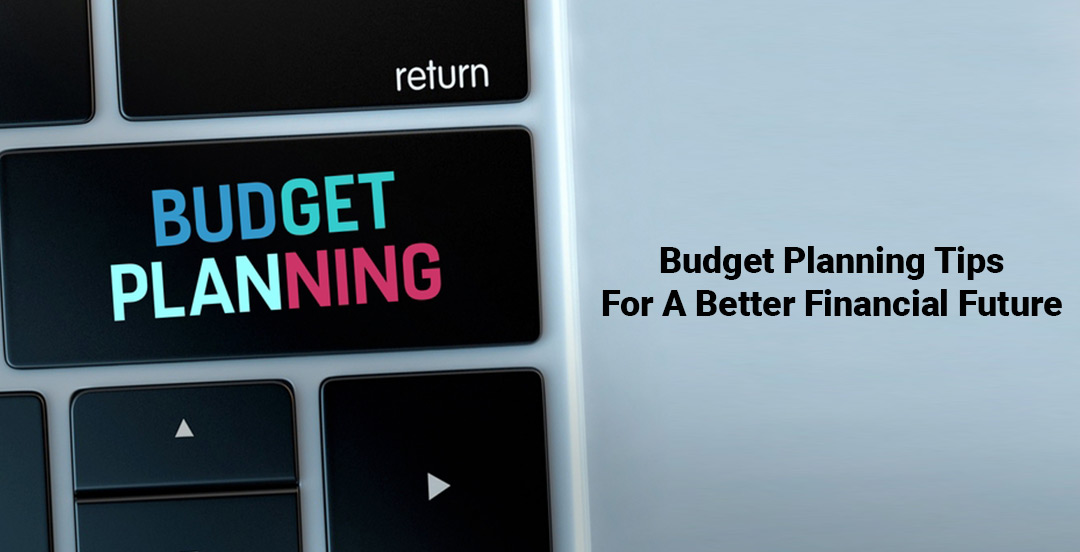
- Managing Money
Budget Planning Tips For A Better Financial Future
In a world marked by economic uncertainties and rapidly changing financial landscapes, effective budget planning is the cornerstone of a secure and prosperous future.

- Managing Money
Ways to Get in Better Financial Shape in 2024
As we step into a new year, many of us are eager to make positive changes in our lives, and one area that often takes center stage is our finances.

- Managing Money
How Can Personal Loans Help You Achieve Financial Independence?
In a world where financial goals often seem elusive, personal loans emerge as versatile tools that can empower individuals on their journey towards financial independence.

- Managing Money
How Personal Loan Apps Are Leading To A Financially Healthy India?
In recent years, the landscape of personal finance in India has undergone a transformative shift, thanks to the emergence of innovative financial technologies.

- Managing Money
How to Set Personal Finance Goals?
In the pursuit of financial stability and success, setting clear and achievable personal finance goals is a crucial step.

- Managing Money
6 Steps to Crafting the Perfect Money Management Plan
Managing your money wisely is like steering a ship through choppy waters – it requires planning, careful navigation, and a clear destination in mind.

- Managing Money
4 Steps to Build Personal Financial Discipline
Understanding taxes can be a bit tricky, but it's crucial for managing your finances effectively.

- Managing Money
5 Tips to Spend Less & Save More this Festive Season
The festive season is a time of joy, celebration, and togetherness.

- Managing Money
4 Investment Options to Start with This Festive Season
The festive season is not just a time for celebrations and joy; it's also an opportune moment to invest and grow your wealth.

- Managing Money
Financial Lessons To Learn From the Holiday Season
The holiday season is a time of joy, celebration, and spending time with loved ones.

- Managing Money
How to Set S.M.A.R.T Financial Goals?
In today's fast-paced world, setting financial goals is crucial to secure a stable future.
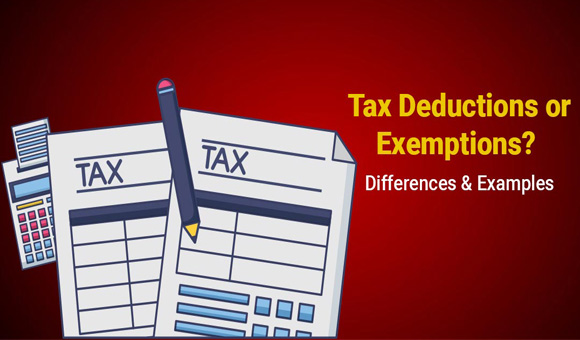
- Managing Money
Tax Deductions vs. Exemptions – Differences & Examples
Understanding taxes can be a bit tricky, but it's crucial for managing your finances effectively.

- Managing Money
5 Signs You Need to Revise your Money Goals
Money goals are like a roadmap for your financial journey. They help you navigate through life, ensuring you reach your desired destination of financial stability and security.

- Managing Money
7 Best Investments Options in India
Are you thinking about making your money work for you? Investing is a smart way to grow your savings over time.

- Managing Money
7 Ways to Teach Financial Literacy to Children
In a world where financial decisions play a crucial role in shaping our lives, imparting financial literacy to children has become more important than ever.

- Managing Money
What Your Lifestyle Reveals About Your Financial Future?
Have you ever wondered what your everyday choices say about your financial future? The way you live, spend, and save can give valuable clues about where your finances might be headed.

- Managing Money
7 Easy Ways to Control Overspending
Overspending can sneak up on anyone and put a dent in your wallet. But fear not, because managing your spending doesn't have to be complicated!

- Managing Money
How to Save Taxes Beyond Section 80C?
Wealth planning is essential for achieving financial security and prosperity. However, the road to build and preserve wealth is not without its share of risks. To ensure a successful journey, it is crucial to understand and effectively manage these risks. In this blog, we will explore the concept of risk management in wealth planning.
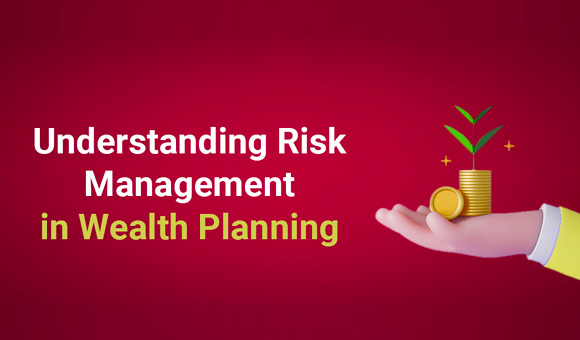
- Managing Money
Understanding Risk Management in Wealth Planning
Wealth planning is essential for achieving financial security and prosperity. However, the road to build and preserve wealth is not without its share of risks. To ensure a successful journey, it is crucial to understand and effectively manage these risks. In this blog, we will explore the concept of risk management in wealth planning.

- Managing Money
4 Most Common Types of Dividend Policies
When investing in the stock market, one of the most attractive aspects for investors is the potential to receive dividends. A dividend is a portion of a company's profits that is distributed to its shareholders. However, not all companies follow the same approach when it comes to distributing dividends.

- Managing Money
Long-term vs. Short-term Investments: Pros and Cons
When it comes to investing your hard-earned money, it's important to have a clear strategy in mind. Two common approaches are long-term and short-term investments.

- Managing Money
10 Effective Budgeting Strategies for Saving Money
Budgeting is a fundamental skill that empowers individuals to take control of their finances and work towards their financial goals. Creating a budget helps you track your income and expenses, identify areas where you can save money, and make informed financial decisions.

- Managing Money
Investing Wisely: Tips for Growing Your Wealth
Building wealth is a goal shared by many, but it can often seem like a complex and overwhelming task. However, with a few simple strategies and a basic understanding of investing, you can set yourself on the path to financial success.

- Managing Money
Building an Emergency Fund: Why It's Important & How to Start?
Life is full of surprises, and emergencies can happen when we least expect them. Whether it's a sudden medical expense, a car repair, or a job loss, having a financial safety net can make a world of difference.

- Managing Money
What is a Goal-based Investment & how should you do it?
When it comes to managing our finances, many of us are often unsure of where to begin. We may have dreams and aspirations, such as buying a house, funding our children's education, or retiring comfortably. However, without proper financial planning, these goals can remain distant dreams.

- Managing Money
How to Secure Your Investments During Inflation?
As a moneymaker, you have worked hard to build your portfolio and want to see solid returns over time. However, during periods of high inflation your investments and returns can come under pressure.

- Managing Money
How to Use 80C Deductions to Reduce Your Tax Burden?
Ever feel like you're paying too much in taxes each year? You're not alone. As a salaried employee, a huge chunk of your income goes towards taxes. But here's the good news: there are legal ways to reduce your tax burden. Section 80C of the Income Tax Act 1961 allows you to claim deductions on select investments and expenses.

- Managing Money
Common Mistakes to Avoid While Filing Income Tax Returns
You’re probably already aware of the need to file your income tax return (ITR) every financial year. But did you know that there are some common mistakes associated with filing ITRs? It’s important to be aware of these mistakes so that you can avoid them and make sure your ITR filing is accurate and effective.

- Managing Money
Old vs New Tax Regime: Which is the Best Option for You?
Tax planning plays an important role in managing finances effectively. With the introduction of the new tax regime in India, taxpayers now have the option to choose between the old and new tax regimes based on their financial goals and circumstances.

- Managing Money
Saving Vs. Investing: What’s The Difference?
Do you ever find yourself confused about the difference between saving and investing? You're not alone! While both involve putting money aside for the future, they are two distinct financial strategies.

- Managing Money
Where can you find extra funds to save!
Every small drop makes an ocean. Similarly, every rupee you save could come to use in the future. In this article, we offer you ways to save money in the most unlikely of ways.

- Managing Money
7 Budgeting pitfalls that can push your finances off track
Feel like your budget isn’t quite working? You could be making any of the budgeting mistakes listed here. Read on to know how Seema and Uday fixed their budgets successfully.

- Managing Money
Setting smart financial goals
It’s not just about how much you save. It’s also about how S.M.A.R.T you save. Find out what they are for you and how you can save for them.

- Managing Money
Right time to start saving: In your 20s or 30s!
This infographic shows when you should start saving and why through Aisha and Riya’s stories.

- Managing Money
Why is it important to have an emergency fund, How can you build one!
An emergency fund can provide a cushion in various situations. Read on to understand why you need it, and how you can build one.

- Managing Money
Where to park your emergency savings!
While emergency funds are meant to be easily accessible, that doesn’t mean you should store it all in cash. Instead, follow these tips to keep them secure yet accessible.

- Managing Money
How to start saving money
This article talks about old and new ways of saving money. It also mentions quick tricks to save more from everyday expenses.

- Managing Money
Are you overestimating your income when budgeting!
Overestimating income is a more common mistake that you would think. In this article, we give you step-by-step guides to avoid spending with the assumption of having more money.

- Managing Money
How important is it to have medical insurance!
Sameer understood the importance of having medical insurance only after getting into an accident. Here’s what you can learn from his experience.

- Managing Money
How to keep your money safe from yourself!
Make your budget water-tight by using these tips to keep yourself from misspending your money.

- Managing Money
Teach your kids the whys and hows of money management
Responsible children grow up to be wise adults. Give your children the tools to become financially successful in the future with these tips.

- Managing Money
Know where all your money is going before you start budgeting
Vidhi complains to Arvind that despite budgeting as he had suggested, she still isn’t saving enough. Read this comic strip to know why and how Arvind helped her find a way to save thousands of rupees!

- Managing Money
Why should I save money when getting loans is so easy!
While taking a loan might be an easy option, it’s not advisable to borrow unnecessarily. Learn more about benefits of saving regularly and consistently.
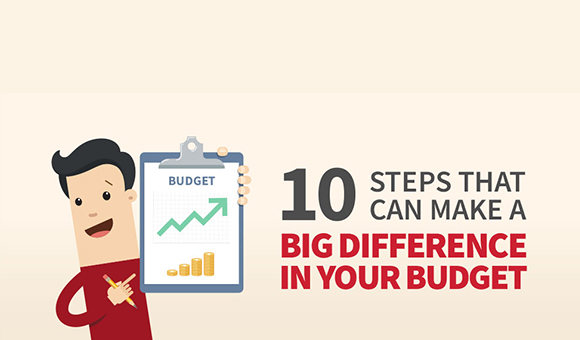
- Managing Money
10 steps that can make a big difference in your budget
Having a fool-proof budget can get you on the right financial track. Use these 10 tips to keep your finances on track.

- Managing Money
How can you protect your family with life insurance!
Sahu ji is worried about his family’s wellbeing but doesn’t have a life insurance plan yet. Arvind helps him understand why it is important to get one.
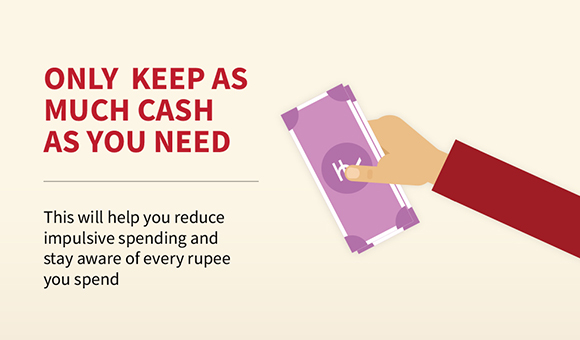
- Managing Money
9 modern ways to save money
ONLY KEEP AS MUCH CASH AS YOU NEED This will help you reduce impulsive spending and stay aware of every rupee you spend

- Managing Money
8 budgeting apps that can make money management easier
GET SMART WITH YOUR MONEY MVELOPES. It divides your expenses into separate categories or 'envelopes' and allows you to set spending limits.
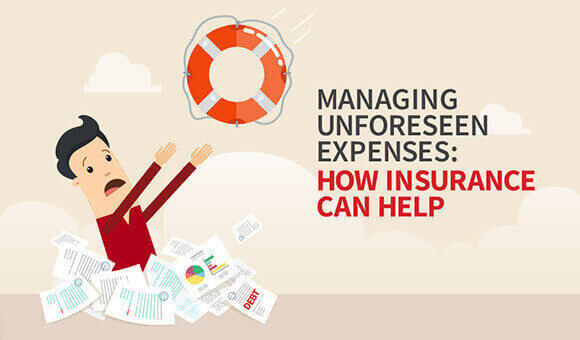
- Managing Money
How can insurance help you deal with emergencies!
Having an insurance plan is like having a life jacket – you won’t know how useful it is unless you really need it. Read on to understand how the most common types of insurance plans can help you.

- Managing Money
Questions you didn't know whom to ask about budgeting
Do you want to start budgeting but don’t understand how? We’ve answered budgeting FAQs that can help you kickstart your journey.

